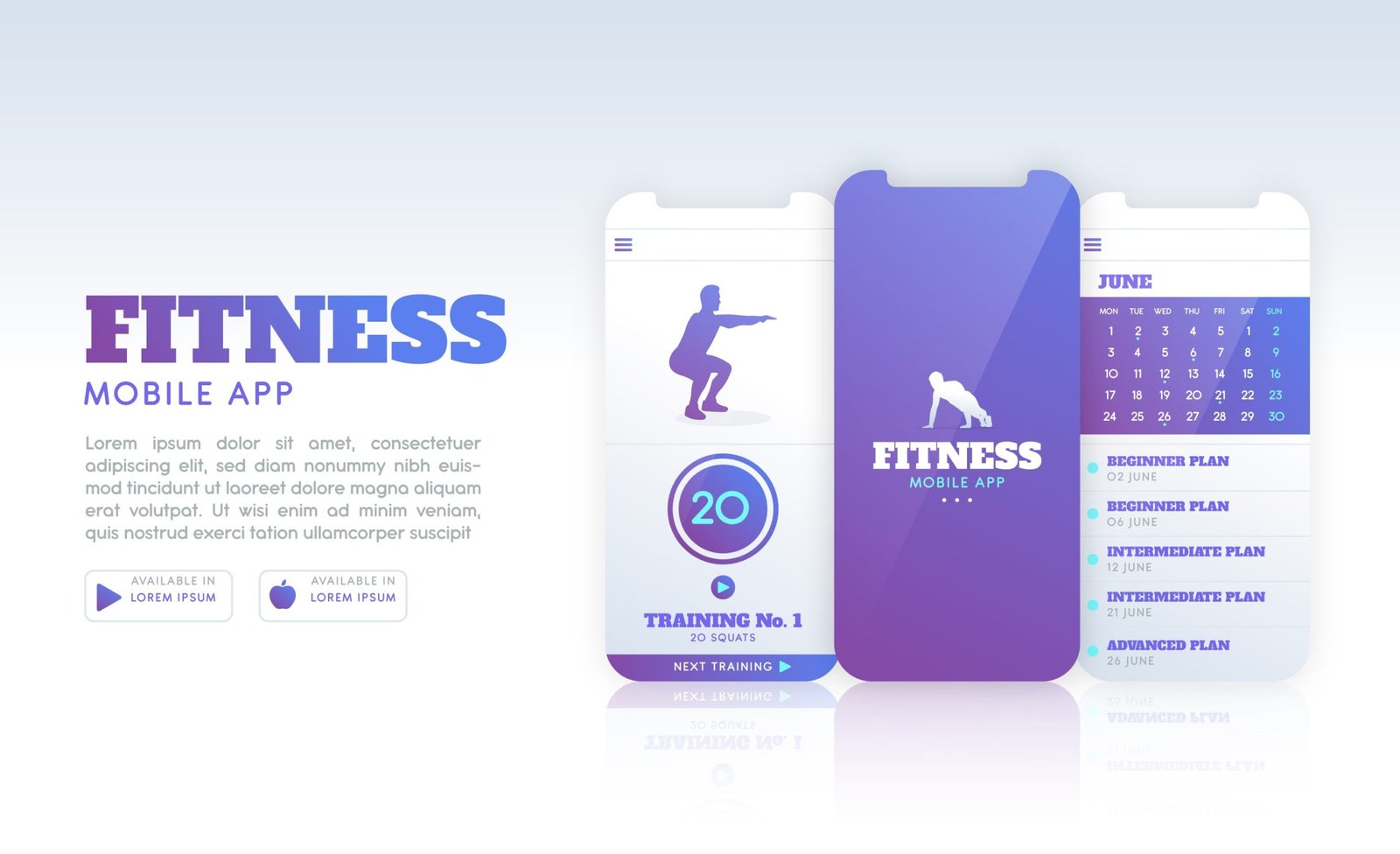
Create an Image that Visually Represents the Connection Between Fitness Apps and Disordered Eating
In today’s digital age, fitness apps have become an essential tool for many individuals aiming to improve their health and wellbeing. While these apps promote activity and healthy eating, researchers are drawing attention to their potential link to disordered eating behaviours. This blog post explores this complex relationship, highlighting the need for mindfulness in using fitness tracking applications.
The Rise of Fitness Apps
Fitness apps have revolutionized the way people approach health and wellness. From tracking workouts to counting calories, these applications have made it easier for users to monitor their progress. Some popular features include:
- Step tracking
- Caloric intake logging
- Workout regimes and exercise plans
- Progress sharing on social media
However, amid their benefits lies a darker side—a potential trigger for disordered eating patterns.
The Link Between Fitness Apps and Disordered Eating
Recent studies, including a significant research piece from Flinders University, have underscored the troubling association between fitness apps and disordered eating. The results indicated that excessive use of these applications can sometimes lead to unhealthy relationships with food and exercise, manifesting in various forms of disordered eating.
What Constitutes Disordered Eating?
Disordered eating is an umbrella term encompassing a range of unhealthy eating behaviours that can disrupt normal lifestyle patterns. This includes behaviours such as:
- Restricting food intake excessively
- Obsessive calorie counting
- Over-exercising
- Alternating between binge eating and restrictive dieting
Individuals may feel trapped in a cycle where their focus on fitness ironically leads to detrimental effects on their mental and physical health.
How Fitness Apps Contribute to Disordered Eating
1. **Increased Caloric Awareness**: Fitness apps often emphasize calorie counting, which can lead to an unhealthy fixation on numbers rather than nutritious foods.
2. **Social Comparison**: Many apps include features that allow users to share their achievements. This can create a negative environment where individuals compare their progress to that of others, leading to feelings of inadequacy.
3. **Exercise as Punishment**: Some users may develop a mindset where they feel compelled to exercise excessively, linking it to their worth or eating habits.
4. **Perfectionism and Body Image Issues**: The societal pressure to look a certain way, often exacerbated by social media, can push some users to obsessively track their fitness journey, leading to a distorted body image.
The Role of Societal Pressures
The prevalence of fitness culture in our society plays a crucial role in fostering harmful attitudes towards body image and eating. From magazine covers to social media influencers, the message is clear: being fit equates to being successful and admired. This pressure can manifest in several ways:
– **Unrealistic Beauty Standards**: Many fitness apps feature images of idealized bodies, which can lead users to feel that their own bodies are inadequate.
– **Cultural Narratives Around Health**: The glorification of extreme dieting or rigorous exercise regimes can pressure individuals to adopt unhealthy habits in pursuit of their health goals.
Promoting Healthy Use of Fitness Apps
Despite the potential pitfalls, fitness apps can be valuable tools for motivation and education when used wisely. Here are some strategies to promote a healthier relationship with these applications:
- Set Realistic Goals: Aim for achievable and sustainable fitness objectives rather than perfection.
- Focus on Health, Not Just Numbers: Shift the emphasis on fitness and nutrition from numbers to overall wellbeing.
- Take Breaks: Regularly step away from your app to assess how it impacts your mental health and overall happiness.
- Seek Professional Guidance: Consult with health professionals if the app’s usage heightens anxiety or leads to disordered eating behaviours.
The Power of Mindfulness
Mindfulness can play a pivotal role in fostering a healthy relationship with fitness apps. By focusing on being present and mindful about food choices and exercise, individuals can cultivate a sense of appreciation for their bodies and what they do, rather than fixating solely on appearances.
Conclusion
Fitness apps have their place in the journey towards a healthier lifestyle, but they come with important caveats. As the connection between fitness apps and disordered eating becomes clearer, users must approach these tools with caution. By fostering a culture of moderation and self-acceptance, we can utilize fitness apps to support our health goals without sacrificing our mental wellness or body image.
Creating Awareness
As we engage with fitness apps, let us remember the ultimate goal of health and wellbeing. Awareness and education about the potential dangers associated with these apps can empower users to make better choices. At the intersection of technology and health lies the responsibility to promote balance rather than obsession.